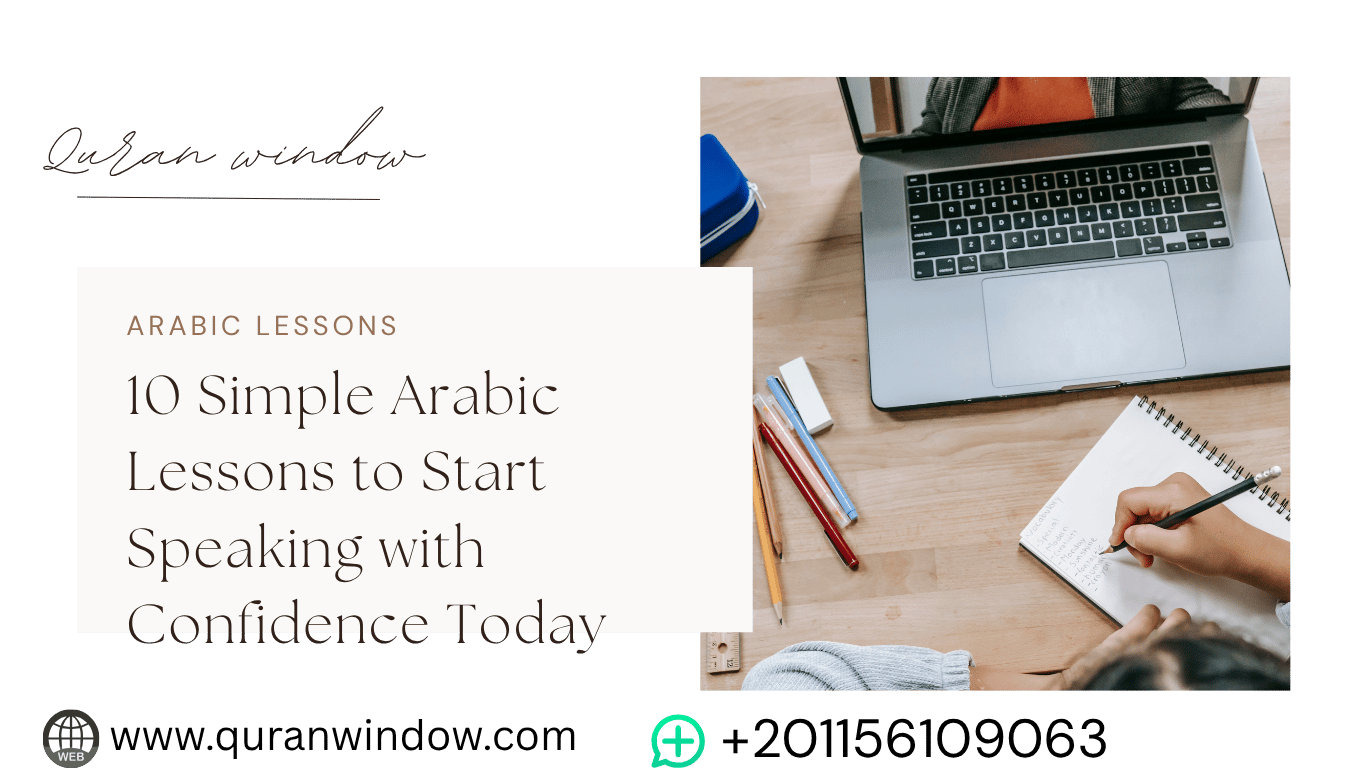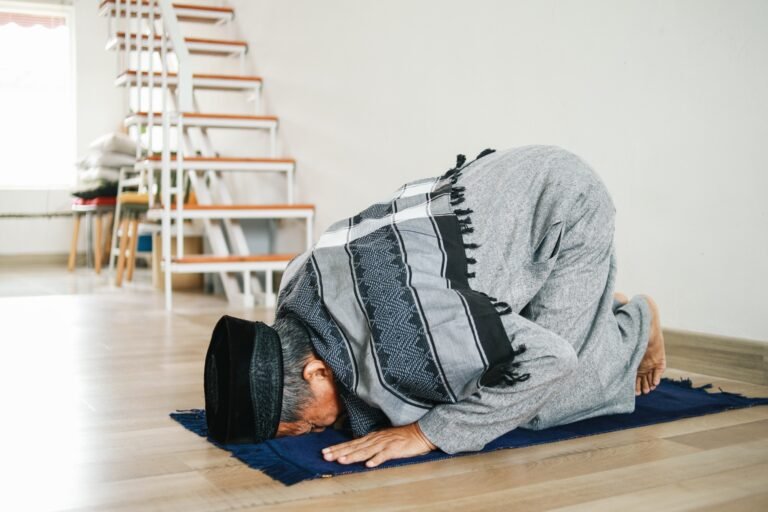10 Simple Arabic Lessons to Start Speaking with Confidence Today
🟢 Introduction
If you’ve ever wanted to learn Arabic but felt overwhelmed, you’re not alone. Arabic is a beautiful and rich language, and with the right approach, it can be easier than you think. That’s why we created these simple Arabic lessons — bite-sized, practical, and beginner-friendly. Whether you’re learning Arabic to understand the Quran, connect with Arab culture, or speak with friends, these 10 lessons will get you started today.
📘 Want to go beyond the basics?
Join our full program Master Arabic — a step-by-step course designed to help beginners speak, read, and understand Arabic with confidence.
🎯 Perfect for non-native speakers.
👉 Click here to start your Arabic journey now
🟡 Why Simple Arabic Lessons Work
Many beginners give up because they start with complex grammar. But simple Arabic lessons focus on real communication first: how to say hello, introduce yourself, and understand everyday phrases. This builds confidence and motivation quickly.
1. Lesson 1: Simple Arabic Greetings for Everyday Use
Hello = السلام عليكم (As-salamu alaykum)
Hi = مرحبًا (Marhaban)
How are you? = كيف حالك؟ (Kayfa haluk?)
Learn the responses and practice them daily with a partner.
2. Lesson 2: Introducing Yourself in Simple Arabic
My name is… = اسمي … (Ismi…)
I am from… = أنا من … (Ana min…)
Use your real name and city to personalize this lesson.
3. Lesson 3: Learn Numbers 1–10 with Simple Arabic Lessons
١ – واحد (Wahid)
٢ – اثنان (Ithnān)
٣ – ثلاثة (Thalātha)
…and so on. Use flashcards or apps like Memrise.
4. Lesson 4: Days of the Week in Simple Arabic
Monday = الإثنين (Al-Ithnayn)
Friday = الجمعة (Al-Jumuʿah)
Helps you schedule and understand Islamic contexts.
5. Lesson 5: Asking Questions in Simple Arabic Conversations
What? = ماذا؟ (Mādhā?)
Where? = أين؟ (Ayna?)
Why? = لماذا؟ (Limādhā?)
Great for basic conversations and understanding native speech.
6. Lesson 6: Essential Verbs to Use in Simple Arabic Sentences
I want = أريد (Ureed)
I like = أحب (Uḥibb)
I go = أذهب (Adhhab)
Practice with simple nouns to form mini-sentences.
7. Lesson 7: Talking About Your Family Using Simple Arabic Words
Father = أب (Ab)
Mother = أم (Umm)
Brother = أخ (Akh)
Sister = أخت (Ukht)
Family words make Arabic more personal and relatable.
8. Lesson 8: Must-Know Classroom Phrases from Simple Arabic Lessons
Repeat please = أعد من فضلك (Aʿid min faḍlik)
I don’t understand = لا أفهم (Lā afham)
Perfect for learning environments or online classes.
9. Lesson 9: Important Quranic Vocabulary in Simple Arabic
Allah = الله
Quran = القرآن
Prophet = نبي (Nabiyy)
These words help build a spiritual connection as you learn.
✅ Lesson 10: Simple Arabic Sentences
I live in Cairo = أنا أعيش في القاهرة
I speak a little Arabic = أتكلم العربية قليلاً
Try making 5 personal sentences using what you’ve learned so far.
✅ Ready for the next step?
Our full Arabic course, Master Arabic, dives deeper into vocabulary, sentence structure, listening, and speaking practice — all in one easy-to-follow path.
➡️ Enroll now and take your Arabic to the next level.
4. Best Free Tools and Apps to Support Your Simple Arabic Lessons
You don’t have to learn Arabic alone. These free tools can boost your progress:
Quran.com: Listen to verses and read with English translations.
Google Translate (with caution): Good for checking basic words.
Try to use at least one of these tools daily to stay engaged and track your progress.
5. Common Mistakes to Avoid When Using Simple Arabic Lessons
Many beginners struggle because of avoidable mistakes:
Focusing only on grammar without speaking or listening.
Being afraid to speak, waiting to be “perfect”.
Skipping Arabic script, relying only on transliteration.
Inconsistent practice, which leads to frustration.
Remember: fluency comes with time, not perfection. Don’t be afraid to make mistakes — they’re part of the learning process.
7. Take the Next Step: Master Arabic After Simple Arabic Lessons
Arabic is more than just a language. It opens doors to:
Understanding the Quran in its original form
Connecting with 400+ million native speakers across 20+ countries
Exploring a rich cultural and literary tradition
Enhancing cognitive skills and memory
Whether you’re learning for faith, travel, or career, Arabic gives you access to a whole new world of knowledge and meaning.
8. Conclusion: Make the Most of Your Simple Arabic Lessons
Mastering Arabic doesn’t have to be hard. These simple Arabic lessons give you a strong foundation to build real speaking confidence. With consistent practice, daily repetition, and the right resources, Arabic will soon feel like second nature. Don’t wait — start your Arabic journey today and open the door to a whole new world of meaning and connection.
🚀 You’ve seen how simple Arabic lessons can get you started.
Now imagine what you can achieve with a complete roadmap!
💡 Don’t miss our full beginner-friendly course:
👉 Master Arabic – From Zero to Fluent
Learn at your own pace, with lifetime access and real results.








